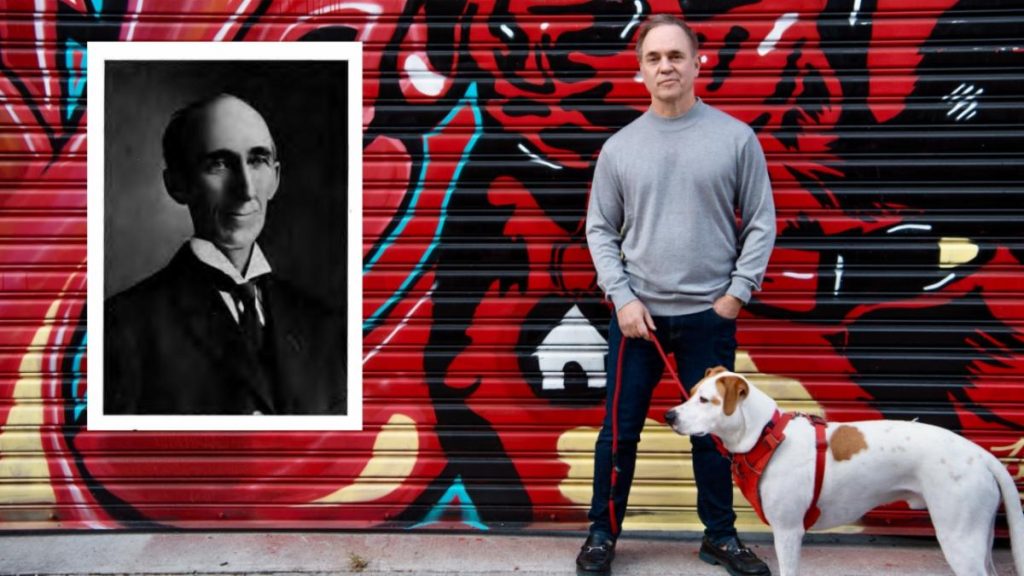And now for some good news…
I’ve meant to share this, but it never directly fit in with anything I was writing recently.
Therefore, it seems fitting to lead today with some genuine good news:
Through a combination of faith and the best of modern science,Agathor––my dog park friend’s husky who we feared might never walk again––is now, I’m delighted to share, not only back on his feet but also pretty much fully healed.

I was there the awful moment Agathor was injured, and for days afterward, I was part of several text chains where the bad news kept coming.
For many months, the prognosis was iffy at best.
Yet somehow, despite all the terrible fears that he’d never walk again, I now see him in the field, as sweet as ever, ambling toward us.
Many of you gave generously to his GoFundMe––the medical costs were off the charts––and I know that even more of you sent good thoughts his way.
It’s always nice to have a reminder that miracles ARE not only possible, but sometimes, you can witness them in your own backyard (or baseball field)!
Speaking of which …

The theme of this month’s meditation on Expansion is inspired both by my terrace garden and by the book I’m passionately, perhaps even compulsively, re-reading, Wallace Wattles’ 1910 classic, The Science of Getting Rich.
This slim volume has influenced pretty much every teacher of transformation, motivational speaker, and self-help author.
In fact, those who cite the work as the book that “changed things for them” include Tony Robbins, Marie Forleo, Bob Proctor, Jack Canfield, Lisa Nichols, Michael Beckwith, Joe Vitale, Jen Sincero, and perhaps most significantly, Rhonda Byrne in The Secret.
Strangely though, almost no one I know in my day-to-day life has actually read the original book.
Call it a mini-course, call it a book club––I’m incredibly excited about offering a deep dive into it HERE.
Note: It’s my most affordable offering to date, with 20% off right now for Early Birds.
Fittingly, I have a very expansive vision for where I’d like to take this material afterward; thus I’m thrilled by the idea of beta-testing it with a small group right now.
Details again are HERE.

There’s no way that Agathor would be walking again without the support of our community.
I only know a fraction of it, but I witnessed people really banding together to make healing possible.
I find this spirit embodied in a particularly moving poem by Joy Harjo, the 23rd United States Poet Laureate and the first Native American to hold that honor.
Here’s the last section of the poem:
For Calling the Spirit Back
from Wandering the Earth
in Its Human Feet
Call upon the help of those who love you. These helpers take many forms: animal, element, bird, angel, saint, stone, or ancestor.
Call your spirit back. It may be caught in corners and creases of shame, judgment, and human abuse.
You must call in a way that your spirit will want to return.
Speak to it as you would to a beloved child.
Welcome your spirit back from its wandering. It may return in pieces, in tatters.
Gather them together. They will be happy to be found after being lost for so long.
Your spirit will need to sleep awhile after it is bathed and given clean clothes.
Now you can have a party. Invite everyone you know who loves and supports you. Keep room for those who have no place else to go.
Make a giveaway, and remember, keep the speeches short.
Then, you must do this: help the next person find their way through the dark.

This isn’t from The Science of Getting Rich, although it easily could be.
It’s from my friend Joan Sotkin’s work, who’s launching something interesting this fall that I’ll be certain to share.
This quote of hers has always resonated with me, particularly because it highlights the absolute necessity of expansion AND interconnectedness.
“If you think you need more money,
in reality, you need more people
because money always comes from people.”
Sometimes, it’s all too easy to forget that.

I admit to having some selfish reasons to offer the new course now.
First, as always, there’s the motive that Gloria Steinem summarized as
“We teach what we need to learn.”
More specifically, although so many people have expanded on Wattles’ work, even creating entire franchises around it, I’ve gained so much by going back in the other direction, straight to the source material.
Although some of the references, particularly those around, for example, Gilded Age Railroad Robber Barons, are obviously dated, there are many moments in the original work that I’ve found Wattles’ paraphrasers have simply omitted.
Indeed, despite the brevity of the book and his penchant for repeating key points, there are still invaluable nuggets others seem to have missed…or simply not understood.
Perhaps this is partly because much has changed since Wattles wrote his book.
It was published, for example, four years before the commercial flight took place in 1914.
Even so, Wattles envisioned in its pages that air travel could “become a great industry,”giving “employment to hundreds of thousands, and perhaps to millions, of people.”
As focused as he was on distilling everything down to what he considered an absolute science of prosperity for his present moment, Wallace felt that perhaps its most universal and timeless law was the unbreakable spirit of Eternal Expansion.

Netflix was quite correct in recommending its newest documentaryThe Mind of the Dogto me, which of course, I watched on the day of its release.
I learned many things, including that parallel to humans and our fingertips, dogs have unique nose prints.
I also found it both charming and moving that service dogs can be trained in “nightmare interruption” for veterans with PTSD.
I’m not in that category, but I think anyone who has a good dog in their life knows that they are perpetually performing some form of “nightmare interruption” for us all.
In any case, I found one quote from the canine researchers particularly charming.
Forget about Darwin––dogs have created such a triumphant relationship with humanity by a superior principle:
Survival of the Friendliest.
I’ve since learned that the phrase “Survival of the Friendliest” originates from the work of anthropologists Brian Hare and Vanessa Woods.
They posit that self-domestication which involved factors such aslanguage and emotional intelligence, is what allowed our ancestors to become “the most successful mammal on the planet.”
We are here, in other words, because people were able to expand while staying connected.
It’s also the reason Agathor can walk again and that people can keep learning from a tiny book released 114 years ago.
Ultimately, Survival of the Friendliest is an expansive testament to all the miracles that can happen when we do as Harjo tells us we must: “help the next person find their way through the dark.”
Namaste for Now,

